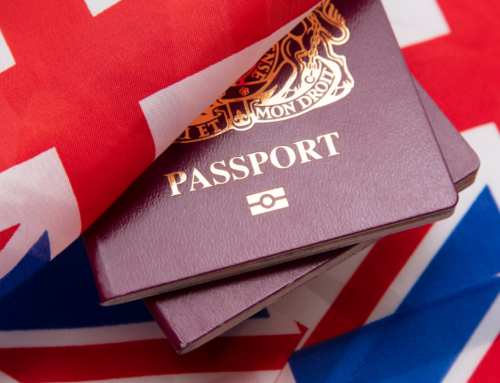Traveling on a budget is a common goal for many adventurers looking to explore the world without breaking the bank. By implementing smart budget travel tips, anyone can create an effective travel budget that maximizes their experience while minimizing costs. Knowing how to manage expenses on the road can open up possibilities and allow for more explorations.
Creating a daily budget can help travelers keep track of their spending in real time, ensuring that they stay within their limits. This approach allows for flexibility in adjusting plans while taking advantage of spontaneous opportunities that arise. Being informed about local deals and attractions further enhances the potential for a fulfilling journey at a lower expense.
Ultimately, with the right strategies in place, budget travel does not have to mean sacrificing quality experiences. By prioritizing value and planning carefully, travelers can enjoy rich and memorable adventures without financial stress.
Planning Your Budget Travel
Budget planning is crucial for an enjoyable travel experience. It requires careful consideration of destinations, expected costs, and potential savings through travel rewards programs. This structured approach helps travelers maximize their experiences while minimizing expenses.
Determining Your Destination
Choosing a destination affects the overall travel budget. Popular places like France and Italy often come with higher costs due to demand. Travelers should research various destinations to find those that fit their budget.
- Consider Off-Peak Travel: Traveling during the off-season can lead to significant savings.
- Explore Alternative Locations: Instead of major cities, look into less touristy areas that may offer a more authentic experience at a lower cost.
Using a map or travel blog can also help identify hidden gems. The number of days spent at each location matters, as longer stays may escalate accommodation costs.
Calculating Expected Travel Costs
Travel costs can be categorized into various segments, including transportation, accommodation, meals, and activities. Using a budget calculator can simplify this process.
- Transportation: Research prices for flights, trains, or car rentals. For Europe, using budget airlines can reduce costs.
- Accommodation: Consider hostels, Airbnb, or budget hotels. Prices often vary significantly based on location and time of year.
- Meals: Eating out can be expensive. Planning to cook some meals or choosing local eateries can save money.
Travelers should list out estimated costs in each category and total them for a complete picture of expected expenses.
Leveraging Travel Credit Cards and Points
Travel credit cards offer a strategic method to reduce travel costs. Many cards provide bonuses that can cover flights or hotel stays. Selecting the best travel credit cards involves assessing fees, rewards, and additional benefits.
- Points and Miles: Travelers can earn these through regular spending, which can lead to discounted or free travel.
- Sign-Up Bonuses: Many cards offer substantial bonuses for new users, which can be redeemed for travel rewards.
It’s important to read the terms and conditions of each program to maximize benefits. Using rewards from a travel credit card wisely can significantly decrease the vacation budget.
Saving on Transportation
Travelers can significantly lower their expenses by choosing efficient transportation options. Focusing on budget airlines, understanding local transportation costs, and utilizing apps can help achieve these savings.
Choosing Budget Airlines
Budget airlines such as Ryanair, Spirit, and EasyJet offer lower fares compared to traditional carriers. They often have promotional deals and discounts that can be found on sites like Skyscanner or Kayak.
When booking, flexibility with travel dates can yield cheaper flights. A traveler should explore Hopper, which predicts price trends, allowing for better timing when purchasing plane tickets.
Keep in mind that budget airlines may charge for extras, like checked baggage. Understanding these costs upfront is essential to avoid surprises.
Understanding Transportation Costs Within Destinations
Transportation costs vary significantly within destinations. In urban areas, public transportation options like buses and subways are often more economical than relying on taxis or rideshares.
Many cities offer daily or weekly transit passes that can be a cost-effective choice for frequent travelers. Exploring local options such as bike rentals can also provide savings while enhancing the travel experience.
A traveler should research transportation alternatives in advance to avoid overspending. Information can often be found on local tourism websites.
Using Apps for Cheaper Transportation Options
Numerous apps can aid in finding cheap transportation solutions. Uber and Lyft can sometimes offer competitive rates against traditional taxis, but comparing prices is crucial.
Public transportation apps may provide real-time information about routes and fares, enhancing convenience.
Additionally, platforms like Rome2rio help travelers see all available transportation methods for a specific route, making it easier to choose the most affordable option. Utilizing these tools allows for smarter, budget-friendly decisions on the go.
Accommodations and Lodging
Finding affordable accommodations is crucial for budget travelers. By exploring various options and timing travel plans strategically, significant savings can be achieved. Additionally, alternative lodging strategies can further reduce costs while enhancing the travel experience.
Exploring Cost-Effective Accommodation Options
Budget travelers can choose from a variety of accommodation types to save money. Hostels offer shared rooms at low prices, typically including amenities like kitchen access. Airbnb rentals can provide unique stays and price flexibility, often cheaper than hotels.
Couchsurfing allows travelers to stay with locals for free, adding an authentic touch to the journey. For those willing to trade skills for lodging, platforms like TrustedHousesitters offer opportunities to stay in homes in exchange for pet care.
Timing Your Travel to Avoid High Season Rates
Traveling during off-peak seasons can lead to substantial savings on lodging. Hotels often increase rates during high season, particularly in popular destinations. By planning trips during shoulder seasons or weekdays, travelers can access lower rates.
Many lodging providers also offer discounts for last-minute bookings. Keeping an eye on flash sales and special promotions can unlock further savings opportunities. Utilizing websites that aggregate price comparisons can aid in finding the best deals available.
Alternative Lodging Strategies
In addition to traditional options, there are numerous alternative lodging strategies. Work exchange programs allow travelers to work a few hours per day in exchange for accommodation, reducing costs while providing local insight.
Another option is to consider renting homes or apartments for longer stays, which can provide a more home-like atmosphere and often include kitchen facilities for self-catering. Planning ahead and researching lesser-known accommodations can reveal hidden gems that are both cost-effective and unique.
Practical Budgeting Tips
Effective budgeting during travel can significantly reduce expenses without compromising the experience. By managing food costs, finding affordable activities, and securing appropriate insurance, travelers can enjoy their trips while staying within their financial limits.
Managing Food and Drink Expenses
Food and drink can consume a large part of a travel budget. To keep these costs down, travelers should consider cooking their own meals when possible. Staying in accommodations with kitchen facilities allows for grocery shopping and meal preparation.
Eating like a local is another strategy. Street food and local markets often provide delicious and affordable options. It’s also worth seeking out lunch specials, as many restaurants offer reduced prices at this time. Avoiding touristy spots for meals can lead to significant savings.
Using water bottles to refill and reduce drink expenses is practical. Many destinations offer safe drinking water, allowing travelers to carry a reusable bottle. This small change can save money while promoting sustainability.
Finding Free or Low-Cost Activities
Many cities offer an array of free or low-cost attractions. Free walking tours are popular in numerous destinations and provide informative insights from local guides. These tours often operate on a tip-based system, making them budget-friendly.
Additionally, tourists can visit parks, museums with free admission days, and local festivals. Researching ahead of time can uncover numerous affordable alternatives.
Travelers should also take advantage of public transportation. Unlike taxis, buses and subways allow access to various attractions at a fraction of the cost. This can enhance the travel experience while adhering to budget constraints.
Staying Safe and Insured on a Budget
Travel insurance is essential for managing potential medical expenses. It can cover unexpected health issues, cancellations, or lost luggage. Purchasing travel insurance early can often yield better rates and more inclusive coverage.
It’s also crucial to check specific health insurance policies. Some may extend benefits abroad or require additional coverage. Confirming vaccines based on the destination can avoid costly medical situations.
Staying informed about local laws and safety protocols is vital. Utilizing local resources can help travelers avoid situations that may lead to financial loss. By following these tips, they can ensure a secure and budget-conscious journey.




Leave A Comment